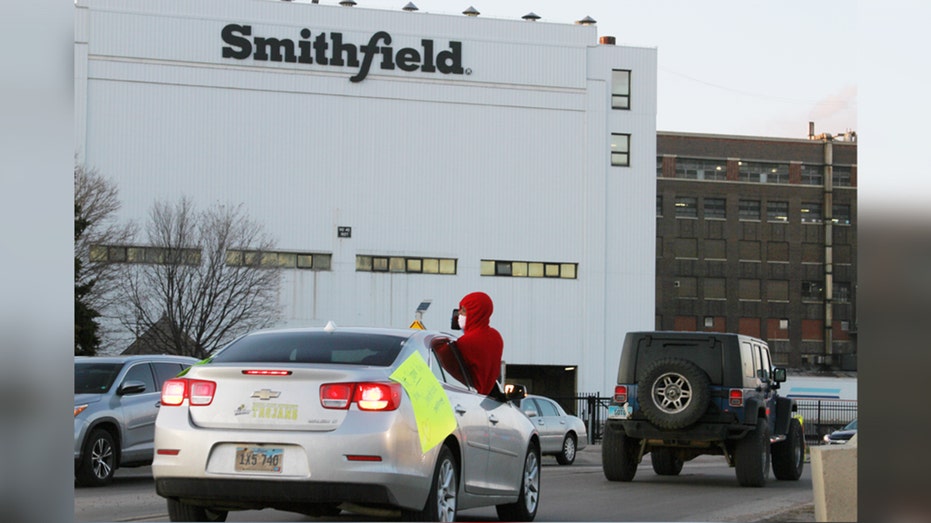Why are meat plants experiencing coronavirus outbreaks?
There are at least 25,000 reported positive coronavirus cases tied to U.S. meatpacking facilities
As coronavirus first spread throughout the country, one industry seemed to experience an outsized number of coronavirus cases: meatpacking plants.
There are at least 25,000 reported positive coronavirus cases tied to U.S. meatpacking facilities meaning the cases are workers or people connected to workers, like family members, according to the Midwest Center for Investigative Reporting. That number continues to grow.
CORONAVIRUS VICTIM'S FAMILY SUES SAUSAGE PLANT WHERE HE WORKED
Meat processing plants have been at the center of coronavirus hot spots in many rural states with otherwise low case counts, including South Dakota and its Smithfield Foods pork processing plant in Sioux Falls. A number of plants had already experienced outbreaks by late April, when President Trump issued an executive order invoking the Defense Production Act ordering meat plants to keep operating to protect the country's food supply during the pandemic.

In this April 9, 2020 file photo employees and family members protest outside a Smithfield Foods processing plant in Sioux Falls, S.D. (AP Photo/Stephen Groves File)
Before social distancing guidelines, workers were in close proximity to one another. In some plants like the one in Sioux Falls, workers spoke as many as 40 different languages, making it more difficult for management to communicate about coronavirus guidance.
Some plants with thousands of workers each had to temporarily shutter because of coronavirus outbreaks, but an outbreak can be even harder on smaller plants and companies, Abe Eshkenazi, CEO of the Association for Supply Chain Management, told FOX Business.
IS SMITHFIELD FOODS OWNED BY CHINA?
"This is part of the challenge," Eshkenazi said. "A lot of organizations were following CDC guidelines … and unfortunately they weren’t as clear in the beginning in terms of what needed to be done."
Coronavirus outbreaks that shut down meat processing plants led to fears of a meat shortage in April and May, but Eshkenazi said supply was never as limited as some feared.

A shopper pushes his cart past a display of packaged meat in a grocery store Sunday, May 10, 2020, in southeast Denver. (AP Photo/David Zalubowski)
"Because we were efficient prior to this, any shift that's going to occur is going to have impact on production and output," he said.
GET FOX BUSINESS ON THE GO BY CLICKING HERE
Some say companies were too slow to invest in personal protective equipment and testing for workers, however.
"We need to be able to test on a daily basis — when workers come into work, if one person has it, they can spread it to dozens," AFL-CIO President Richard Trumka said.




















